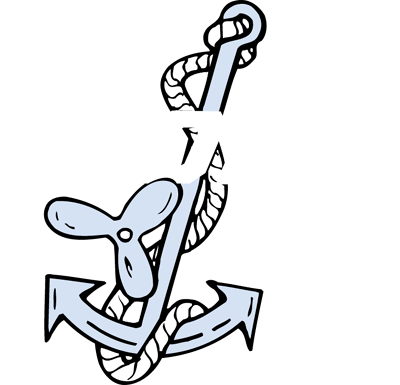Assault On The Citadel: Recent Hopeful Developments In Coast Guard Handling Of Medical Waivers Requests
We have been receiving word that the Coast Guard’s National Maritime Center (NMC) is trying to be more lenient (some might even say reasonable) in their reviewing of mariners’ medical records, and in their processing of medical waiver requests. For those readers who may not have been closely involved with this area of license defense work, a brief review of the background of this issue may be helpful.
As a direct result of the October 15, 2003 Staten Island Ferry collision in New York, the Coast Guard (following severe criticism of it) undertook a major overhaul of its medical review procedures, which resulted in the publication on September 15, 2008 of NVIC 04-08. This document, which is for guidance only and does not have the force of regulation, set forth new medical certification standards, and detailed hundreds of specific medical conditions “subject to further review”, and the recommended evaluation data for such further review. This comprehensive new regimen has been seen by many in the industry as a draconian over-reaction, but NVIC 04-08 is here to stay. In company with the introduction of the new procedures, the Coast Guard slowly shifted the initial stage of medical review away from the numerous Regional Exam Centers in ports around the country, and centralized the procedure in the hands of a medical staff at their “Center of Expertise” at NMC in Martinsburg, West Virginia. NMC also now has a full-time civilian attorney who travels around the country and handles most (but not yet all) of the ALJ hearings on behalf of the Coast Guard, replacing the well-remembered roles non-lawyer Coast Guard prosecutors, who were not infrequently given a little bit of “friendly assistance” at their hearings by sympathetic ALJs.
With this new written and procedural system now in place, we have begun to see in the past several years many more denials of mariner medical waivers, based on the much stricter medical conditions “subject to further review” found in NVIC 04-08. Many of these decisions have been harsh, and sometimes seemingly arbitrary. The best example of such treatment is probably NMC’s blanket denial of a medical waiver for any mariner with an Implantable Cardioverter Defibrillator (ICD), a device similar to a pacemaker, often prescribed for patients with heart arrhythmia, or following an actual heart attack. Over the past year or two, we have received from the industry many reports of similarly arbitrary treatment for other medical conditions, such as, for example, sleep apnea.
Now comes word from Jim Brown, our MOPS network attorney and colleague in Houston, of a significant victory for a Houston pilot in a medical waiver denial appeal. Jim reports that NMC denied the original waiver request, and that the denial was, not unexpectedly, upheld upon application for reconsideration. The denial was then appealed to the Commandant, as set forth for a “Part 10” appeal, under 46 CFR sec. 10.237 (applying to administrative appeals of medical waiver denials). Uncharacteristically, the Commandant came back with a very brief letter, overturning the denial below and granting the waiver. We wish that we could provide more insight into the reasons for this victory, but they are not apparent in the letter. Nonetheless, the news for mariners is still good.
From another source we have also just learned of a possible crack in the armor of arbitrariness relating, not to the use of an ICD itself, but to the underlying medical condition. This news comes directly from a mariner who had not had a heart attack, but has had a history of cardiomyopathy (heart disease, consisting of weak, irregular or damaged heart chambers) and the most damaging symptom of that disease, a low left ventricular ejection fracture (measure of pumping strength of that heart chamber) of 25%. Normal LVEF is considered to be around 55%, and the Coast Guard’s “cut off” for cardiomyopathy has been considered to be, until now at least, 40%. Here again, there was an initial waiver denial, but upon reconsideration, NMC reversed itself and granted the waiver, apparently because of strong showings by the mariner on a subsequent stress test. This decision is particularly significant because previously the Coast Guard had placed determinative reliance upon its LVEF “cut off” of 40%. Previously, a mariner with an LVEF of less than that 40% “cut off” had very little chance of being granted a waiver, especially if the LVEF was as low as 25%.
These two decisions of course must be seen as representing, if anything, only the most modest beginning of change. But we have also been told privately by the NMC attorney who travels around the country to represent the Coast Guard at their ALJ hearings, that NMC is attempting to be more flexible in their handling of medical waiver requests, particularly when the issue is a “close” one; and perhaps this, in company with the two discussed decisions, will herald for mariners the promise of fairer and more individualized treatment of medical reviews at the hands of the NMC.
